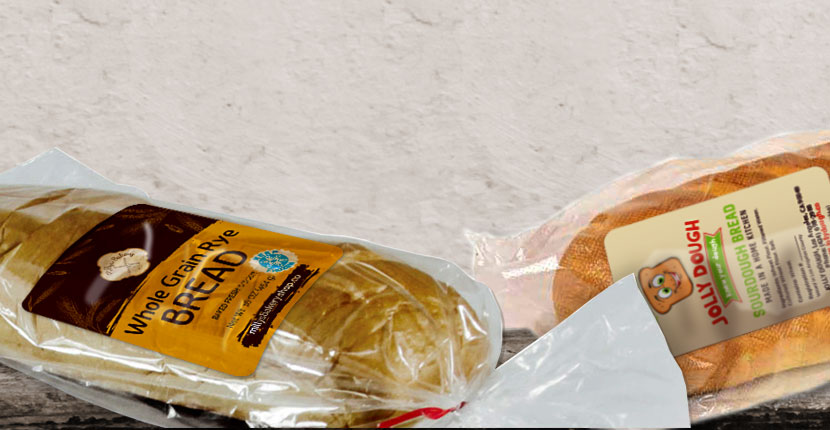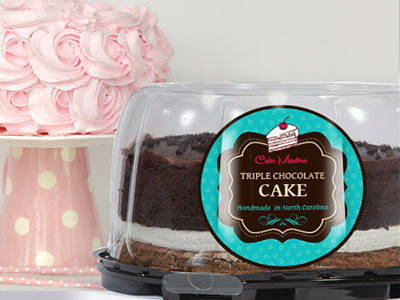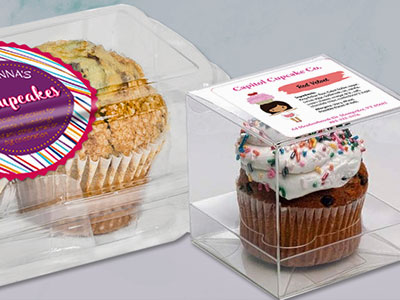Busy people have quite a lot of options for eating on the go or preparing quick meals at home. Bakeries certainly provide a multitude of delicious instant products that can replace home-cooked breakfast, dinner, snack or dessert. Consumers can either eat them on the go, or on the premises. There are many baked food venues where people can sit down, get a cup of tea and enjoy a croissant made from organic ingredients or a sandwich with fresh salad, ham, cheese, etc. Many bakeries also offer their customers an option to simply order a dozen or more bakery products online and quickly bake their dinner at home while finishing off work.
Regulations for Baked Product Labeling
Effective in 2016, the new FDA regulations on nutrition and calorie labeling in restaurants and similar food venues state that bakeries that are part of a “chain with 20 or more locations, doing business under the same name, and offering for sale substantially the same menu items” need to conform to these new requirements. That means that they need to provide nutrition and calorie labeling either on the menu, menu board, at the counter when requested by a customer, or on a label adjacent to their product (muffin, pastry, donut, bagel, cake, etc.)
These new regulations do not apply to smaller bakeries that are not part of chains, but if your bakery is selling pre-packaged (usually frozen) baked products to individual buyers or retail stores, you need to follow the FDA guidelines for proper food labeling.
FDA regulations on food labeling are no doubt complex, which is why thousands of pages of user experiences, questions and comments are uploaded on their website, for other food manufacturers’ benefit. But even if the regulations do not apply to your bakery and baked products, there are still numerous reasons why you should label your products. The most important is: transparency. Offering valuable information about your product to your customers will contribute to building their trust and loyalty.
Types of Information on Bakery Labels
Your frozen, pre-packaged baked products that are sold in supermarkets or retail stores need to contain the following information:
- Common name of the product (e.g. “Muffin”, “Croissant”, “Bagel”, etc.)
- Ingredients used, from the heaviest to the lightest ingredient
- Nutrition facts
- Net weight
- Name and address of the manufacturer
Some small businesses are exempt from nutrition labeling. Information about labeling exemptions can be found on the FDA website.
There are some products that you may be selling in your bakery that do not fall under the FDA regulations for labeling, such as cakes, cupcakes, etc. Cake labels, cupcake labels and stickers for similar products fall under food cottages laws that are different for every state.
The products that are displayed in your bakery but don’t require labeling can only be labeled with adjacent tags that contain helpful information such as the name of the product, certain health claims (if accurate), or perhaps some promotional information.
Here are a few examples of promotional bakery labels that you can use to attract customers:
- 50% off price
- Kosher
- Fresh baked
- Fresh from the oven at ____ (here you can additional write the exact time)
- No sugar added
- Gluten free
Bakery Labels: Custom or Blank, on Rolls or Sheets
There are several things you need to take into consideration when determining the types of bakery labels you need.
- Do you need fully printed, custom designed labels?
- Do you need pre-printed labels with blank space that you will later write on?
- Do you have a machine that will apply additional information on labels?
Depending on the answers, you’ll need either custom labels or blank stickers, on sheets or rolls, pre-printed with your bakery logo or fully printed with all the information that you want. Our professionals will be happy to discuss your options and preferences with you and come up with the best solution for labeling your bakery products. Email us at solutions@foodpackaginglabels.net to get started!



